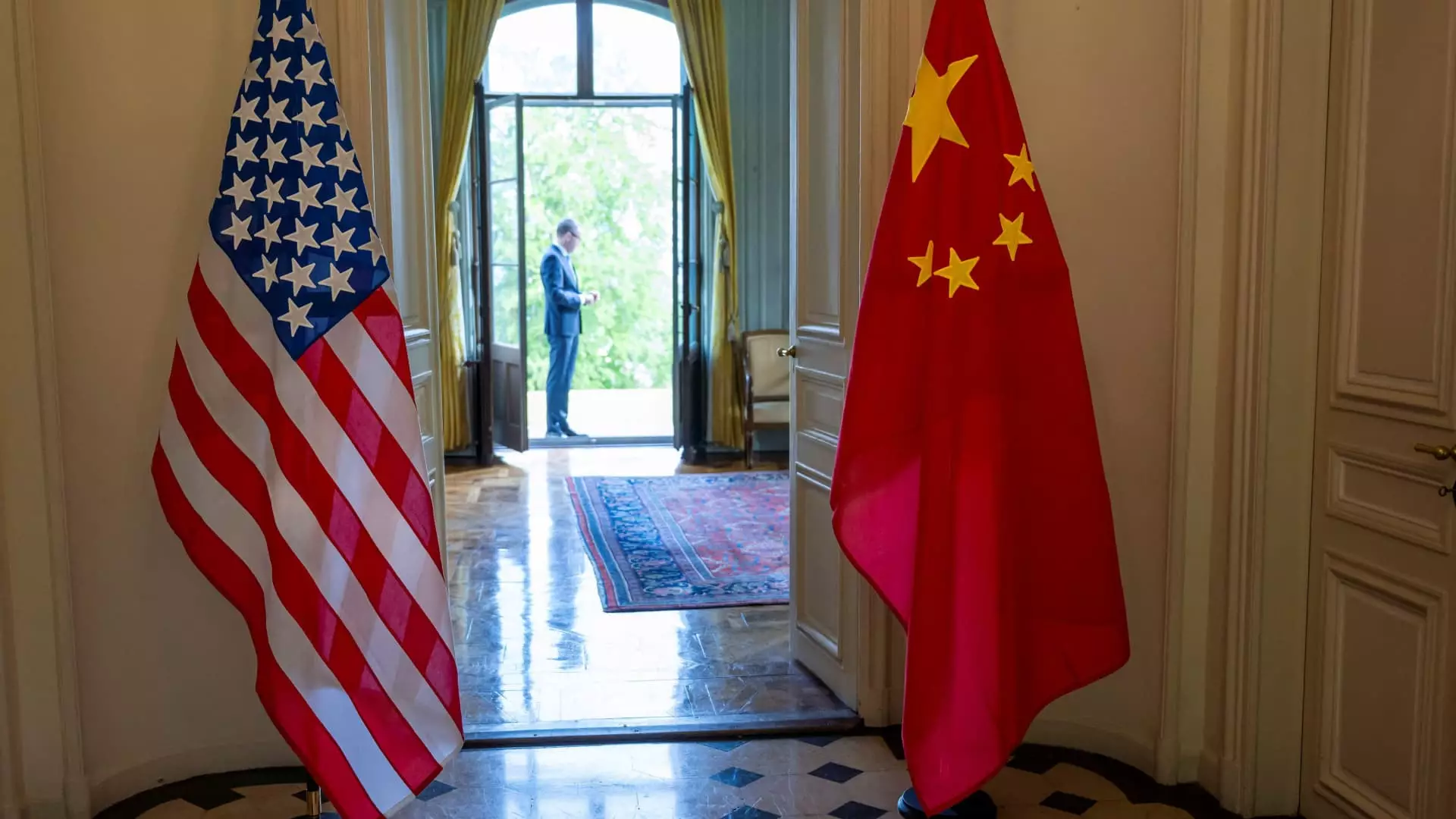As the world’s largest economies grapple with a web of trade tensions, recent statements from U.S. Treasury Secretary Scott Bessent reveal a significant standstill in negotiations between the United States and China. Bessent’s comments to Fox News suggest that, while discussions have taken place and some agreements were reached in Switzerland earlier this year, the essential dialogue needed for real progress has stalled. The surge in trade disagreements and tariffs, termed as an escalating problem, indicates a tense environment that requires immediate intervention from both nations’ leaders.
Bessent has indicated a hope that the two heads of state, President Trump and President Xi Jinping, will communicate soon to break the impasse. However, the possibility of achieving a resolution remains shadowed by complications in the negotiations. Most alarmingly, the existing rift has resulted in tech restrictions by the U.S. that has led to heightened tensions, fostering an environment of suspicion and reactivity from China.
Complexity of the Negotiation Landscape
Trade agreements, especially between two economic giants as dominant as the U.S. and China, are inherently complex. The intersection of technology, tariffs, and international trade laws adds layers of difficulty that require the two countries to navigate with care and consideration. Bessent’s assertion that the dialogue is nestling into stasis underscores the urgency with which both leaders need to engage directly. While diplomatic channels have been exercised, the subtleties of trade discussions can get lost in bureaucratic red tape.
China’s reluctance to ease restrictions on rare earth exports, despite U.S. expectations, reveals that both parties have remaining hurdles to overcome. The U.S. has also pursued a hardline approach towards technological exports, underlining a lack of trust lingering between both nations. It’s essential to view these strategic maneuvers not merely through a lens of trade but as part of a broader geopolitical chess game.
The Impact of Communication (or Lack Thereof)
Communication lines remain open primarily at a logistical level, but a disconnect exists when it comes to substantive discussions that would lead to actionable agreements. The last interaction between Presidents Trump and Xi occurred just before the former’s second inauguration, adding to the mounting frustration over stalled negotiations. Analysts expect the Chinese government to only agree to engage with Trump if they can ensure there will be no unwelcome surprises during discussions. This expectation hints at a degree of tension that could derail any productive dialogue right out of the gate.
China’s Ministry of Commerce has made it clear that they expect the U.S. to amend what is described as “wrong practices,” particularly concerning tech export controls and sanctions. The mention of these practices reflects a grave dissent that permeates the conversation—one where both sides appear unwilling to fully open up for fear of being taken advantage of. That is a dangerous game in diplomacy.
Academic and Cultural Ramifications
Compounding these economic issues, the U.S. decision to revoke visas for Chinese students adds another layer of complexity and hostility to the relationship between the two nations. The Chinese government’s response, labeling these actions as “fully unjustified,” encapsulates the sentiment that today’s trade war transcends economic measures into cultural and educational realms. The very fabric that interweaves our societies is weakened when educational exchanges are reduced; these exchanges have traditionally served as bridges toward understanding between cultures.
We live in a world increasingly defined by globalization, where the flow of ideas and people fuels innovation. Limiting access through punitive measures not only fractures international goodwill but also stymies the advancement of knowledge that can benefit both nations. The repercussions of these measures may extend far beyond economic losses, potentially fostering resentment that lasts for generations.
A Call for Rational Leadership
In this volatile context, it becomes increasingly important for leaders on both sides to move beyond mere political posturing. The complexity of the challenges at hand necessitates a robust, transparent dialogue that prioritizes mutual respect and understanding rather than fear-based negotiations. The longer the trade discussions remain in limbo, the more precarious the international standing of both countries becomes.
Driving toward collaboration and compromise, even amidst disputes, is essential for ensuring both nations emerge stronger from these challenges. Global cooperation should not be an afterthought; it should take center stage as a strategic priority. The stakes involved are far too high for leaders on either side to remain entrenched in a cycle of retaliation and confusion. As we navigate this intricate web of trade relations, a commitment to genuine progress is not just desirable—it is imperative.


Leave a Reply